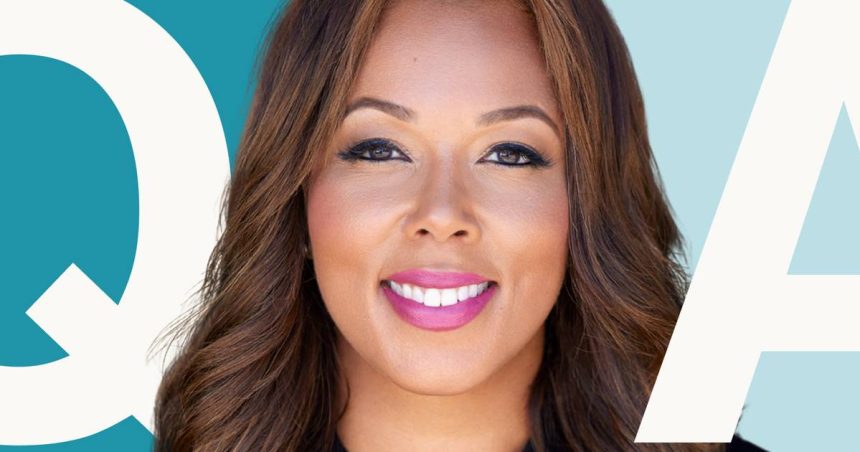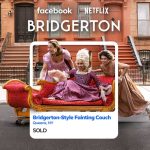Hartbeat, the entertainment company created by comedian Kevin Hart, may be in the business of comedy, but representation is one thing it doesn’t take lightly.
“We are diverse by design. We are a Black-owned company,” Janina Lundy, global head of marketing and brand strategy at Hartbeat, told Marketing Brew. “We have that in our DNA every day of the year.”
We spoke with Lundy ahead of the 2024 Marketing Brew Summit, where she will be speaking on a panel about equity and representation in creator and creative spaces, about the state of the industry.
This interview has been edited and condensed for clarity.
Tell us about your role at Hartbeat.
I lead marketing and brand partnerships, so all of Hartbeat’s brand strategy, PR, social, and any of our general marketing campaigns, as well as our work with brands, infusing them into content that we’re creating or directly developing content for them. We’re working with talent and creators across that entire ecosystem in film, TV, audio—both radio and podcasts—and then, there’s all the talent and creators that we work with for brands, which can be large-scale, long-form content, or digital or social series.
As you recruit for campaigns, what do you do to make sure that there is equal and diverse creator or talent representation?
It’s important as we’re thinking about the creators, but it’s also important as we’re thinking about my team internally and the team that we’re working with to create that content, whether that’s the writers or the directors or the crew. We’re making sure that the people who are working on our campaigns, and the people who are in front of and behind the camera, represent the audiences that are out in the world.
What has your team been working on recently? .
We worked with Venus razors on what they called a “pubic service announcement.” They wanted people to feel more comfortable talking about pubes…so we did a campaign for their female grooming line that was very inclusive, with all women working behind the camera and women of color in front of the camera, including talent that was deaf.
Based on your experience in the industry, where do you see inequity and underrepresentation happening the most among creator marketers?
There are a lot of conversations about pay equity when it comes to creators. I think there’s been a shift in more recent years with brands thinking about the importance of representation and the importance of reflecting the world, so there’s a lot of improvement that’s happening there with brands and having diverse creators that are ultimately going to influence culture.
Do you think that there’s progress being made in pay equity?
I think that there’s more awareness, and it’s part of our responsibility as we’re working with partners across the industry to make sure that we are speaking up for creators…so that’s something that we would push for on our side as well.
If brands are only activating with diverse creators around moments like Black History Month or Pride Month, they might face criticism. Do you feel like brands are doing a better job of activating year-round?
There are definitely some brands doing it better than others. That’s a conversation that I’ve personally been having for a really long time. Having come from other organizations before this, there were a lot of conversations that I had very frankly with teams around, “Sure, Black History Month is important to activate around. However, Black audiences are Black every day of the year, and Black creators are Black every day of the year.” Something that I often say is, “Black audiences don’t wake up and say, ’Oh my goodness, it’s February. Time for me to watch content that looks like me or represents my background or my culture.’” That’s the feeling every day.
Get marketing news you’ll actually want to read
Marketing Brew informs marketing pros of the latest on brand strategy, social media, and ad tech via our weekday newsletter, virtual events, marketing conferences, and digital guides.
Oftentimes, those months are much more about educating audiences that may not be from that background versus the specific audience, so I think what’s valuable for brands that really get it, and ultimately are going to have better relationships with their audiences, is to think about that year-round.
Where do you see the most room for improvement in the industry right now?
There’s room for improvement across the board, right? There’s definitely been growth and progress, but everyone can continue to do better. Talking about the cultural months, like heritage months, there’s definitely opportunity for people to continue to expand to more of an always-on approach there. I think there’s often this idea that content that features Black talent or Black creators, or diverse creators in general, is only meant for those audiences, and there’s an opportunity to expand the thinking there about reaching large, broad audiences with diverse talent and diverse storytelling.
Do you often feel like part of the reason why brands are more inclined to work with some creators over others is because they’re not willing to take a risk and support people who are up-and-coming? How much does that contribute to existing issues?
Yeah, I think people often try to go to the same well over and over again. But I also think part of the issue—and you find this whether it’s with talent and creators or with hiring, it’s kind of across the board—is people hire people that look like them, that they know, that are within their network, that they’re aware of. That’s why we do the stand-up showcase; it gives additional visibility to talent that folks might not be familiar with. And, again, it goes back to why it’s important to have a diverse team. Because often my team is mentioning people that I haven’t heard of, and we’re constantly forwarding each other things that we’re seeing on social media or articles that we’re reading. In our Slack channel, we’re constantly talking about what we’re seeing out in the world, and that happens because we have a team who’s seeing all sorts of different things.
What can marketers do today to make the industry better?
Some of that is about familiarizing yourself and going beyond your world and your network, and seeing what else is out there…It’s taking a look around and not being scared to be vocal about the fact that the creators or talent that you’re working with aren’t necessarily diverse, or you’re noticing that you’re going back to the same well. I think there’s an opportunity to speak up and mention that.
Read the full article here










